How will Conversational AI transform Health and Social Care?
Estimated reading time: 7 minutes
Conversational AI and smart speakers are revolutionising the way we approach health and social care services, providing new opportunities for accessible, convenient and personalised support. I was delighted to head down to Glasgow to present on this topic at the Third Sector Lab’s Tech for Good event.
Conversational AI and generative AI are set to completely disrupt (hopefully in a good way) the way we live and work. In this blog I’ll share some insights into smart speaker adoption in Scotland, the benefits that we’re seeing in health and social care, illustrated with some case studies, I’ll also discuss some of the important privacy and security concerns and what all this means for the future.
How prevalent is the use of Alexa smart speakers in Scotland?
As a bit of context, I thought it would be good to discuss what people in Scotland use their smart speaker for.
Among people aged 16 and above in Scotland, 43% said they had a smart speaker in their home. The Amazon Echo was by far the most popular type (found in 87% of homes which own a device), followed by Google products at 9%. Smart speakers account for 10% of overall digital media listening time in the UK (Ref. Ofcom).
In our own consumer research, we’ve found that overwhelmingly the most popular use cases for smart speakers are listening to music and setting timers and alarms. We also discovered that over 15% of people in Scotland with a smart speaker actually own more than one device. Interestingly, most Alexa smart speaker owners have only a basic speaker device without a screen.
What are the benefits of using conversational AI and smart speakers in health and social care?
We are big advocates for technology being something that is empowering rather than just for monitoring. In the case of our work this might be giving people ways of controlling things in their homes for themselves or helping them to access information and support to boost their wellbeing. Voice technology is the perfect medium to provide support and there are a growing number of use cases around delivering care support and prompts. Often these solutions augment in-person support and treatment. For example, where you might visit a physio for guidance on exercises, this can also be delivered virtually via a voice application on a smart speaker to help people feel more confident and motivated to do their programme at home. A lot of information can be gathered via the smart speakers that help to understand a person’s activities of daily living and therefore allow a more proactive approach when integrated with other health management tools.
Where are conversational AI and smart speakers being used in health and social care across Scotland?
We are leading the way in creating person-centred solutions that help to support people across Scotland, here are two case studies from our work:
Kindspace
Kindspace was created in the midst of the covid-19 pandemic when we couldn’t go to people’s houses in person. We started to help people remotely and created lots of free resources, including running live tutorials on Facebook, mainly helping people learn how to use their Alexa’s to video call loved ones.
It was around this time that we decided to explore creating our own voice applications as another way to help people. We knew that our customers would be experiencing loneliness, stress and anxiety and so decided to focus on creating a daily conversation that would help them to feel supported and be more aware of changes in their wellbeing.
Kindspace offers a wellbeing check, tips library and short audio experiences like journaling and breathing exercises, all without the distractions of a smart phone. We recently completed a research trial looking into whether using Kindspace regularly can help to reduce feelings of worry and the results have been very encouraging. 84% of participants saw a reduction in their feelings of worry after only 6 weeks of using Kindspace. Our work shows the huge potential for using voice technology as an intervention in mental health support. For more information on Kindspace, see here.
ALISS
ALISS is one of our most recent projects. We have been working on this in collaboration with the Health and Social Care Alliance (the ALLIANCE) to enhance their existing community support services platform and make it voice accessible. This project has been an amazing opportunity to co-design with citizens and professionals across health and social care. We received funding from InnovateUK and successfully launched the new My Scottish Community application on Alexa in February. Since then, we have been performing further testing, monitoring usage data and gathering feedback. For more information on ALISS, see here.
What are the privacy and security concerns associated with using smart speakers?
I couldn’t talk about voice technology and not talk about some of the concerns. This is something that we are asked about a lot and we try and support people in their technology journey to be empowered about how their data is used and to understand why sharing data can be beneficial.
When we speak to people about what worries them about their smart speakers the top concerns they raise are that it is listening all the time, they are suspicious about how their data is used and often frustrated by unexpected errors and mishearing of commands. With the rise of third-party voice applications on platforms like the Amazon Alexa, this will increase risk to individuals as these apps may collect personal data and can be vulnerable to hacking. When designing voice applications, it’s important to consider the privacy of sensitive information and ensure data protection.
In the minds of the end user, the lines are blurred between what parts of the Alexa experience are developed by Amazon and which are created by third-party developers. It’s also very difficult for people to give informed consent when they use a voice application. When I was over in the US in April and had the opportunity to meet with the Amazon Alexa team, they asked what the top thing was that we’d like them to work on and enhancing the accessibility around granting permissions to share data is definitely high on our priorities.
What’s the future for conversational AI and smart speakers in health and social care?
What does all this mean for the future. Conversational AI allows much greater context to be gathered about how someone is doing and opens up a huge opportunity to be more proactive and personalise support. When we created Kindspace in 2020, we looked at technologies like the Okay Each Day phone. If you haven’t seen the phone, it is a large button accessible landline phone, with an extra check-in button, that the person presses each day to confirm that they are okay. But this doesn’t give you any history about what has been happening in the person’s life. A conversation with a voice assistant can give you much more information. Within the layers of context that can be collected there is some really exciting work looking at what are called voice biomarkers that can help diagnose neurological and respiratory conditions as well as look at things like stress, tiredness and wellbeing.
Again, when we were developing Kindspace, we spoke to a doctor at the Aberdeen Royal Infirmary. He described how he had patients coming in during the pandemic, that had been putting off seeing a doctor because they were worried about the virus. Many of his patients were older and it was challenging from him to diagnose and recommend the best treatment and the idea of having a way of sharing data from within the home environment with healthcare providers would have provided him with a better understanding of what the underlying issues might be.
The last point about the future of AI I wanted to touch upon, was accessibility. There is a shift towards “technology-less” interfaces, this is also known as ambient computing where you don’t have to physically click, or type, or see the technology to interact with it. This includes things like gesture control, automations based on sensor input or data collection and of course voice commands. Voice control is diversifying to serve a wider range of people, with different languages, accents and importantly also for people with non-standard speech or who are non-verbal. From meeting with the Amazon Alexa team recently, we saw first-hand that accessibility is their top priority, particularly in health and social care use cases.
For me, the most exciting thing is that there are use cases that we haven’t even discovered yet.
Putting the Person at the Centre
As I’m writing this, I’m wondering how I squeezed all this into the presentation! I haven’t included here some of the top tips we shared around supporting technology adoption and addressing the skills shortages. Instead, I’ll cover this in a future blog post.
Voice technologies like smart speakers offer a very natural interface which can make technology accessible to a wider range of people. For many people the thought of new technology is stressful, but I hope this blog shows that embracing voice and conversational AI brings a whole new era to technology, where the person is at the centre.
If you liked this post, subscribe to our mailing list to be notified when we have new posts and support material available. We also often share exclusive additional content here, including updates on the business and life in general. Emails typically go out once every month, so we promise that we won’t overload your inbox!


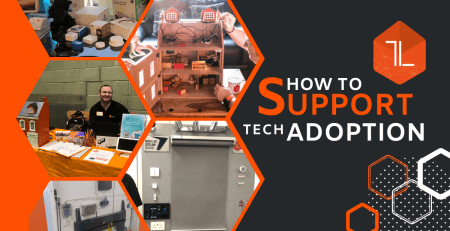
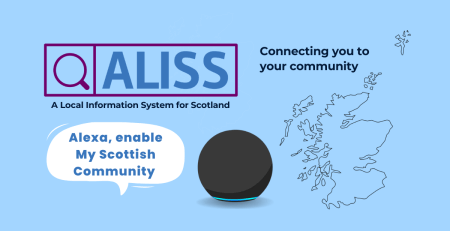
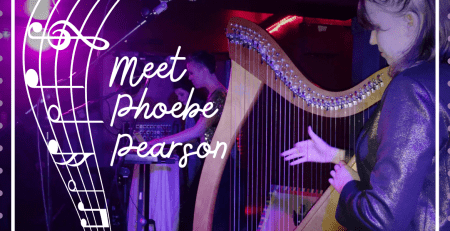
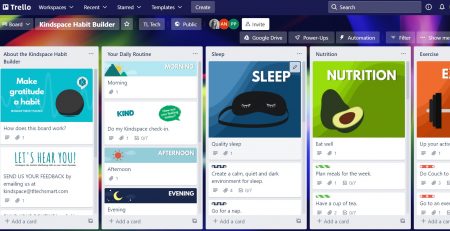



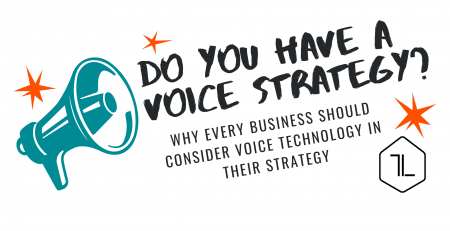

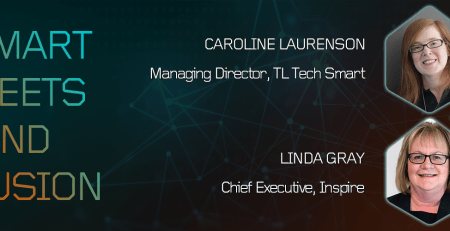
Leave a Reply